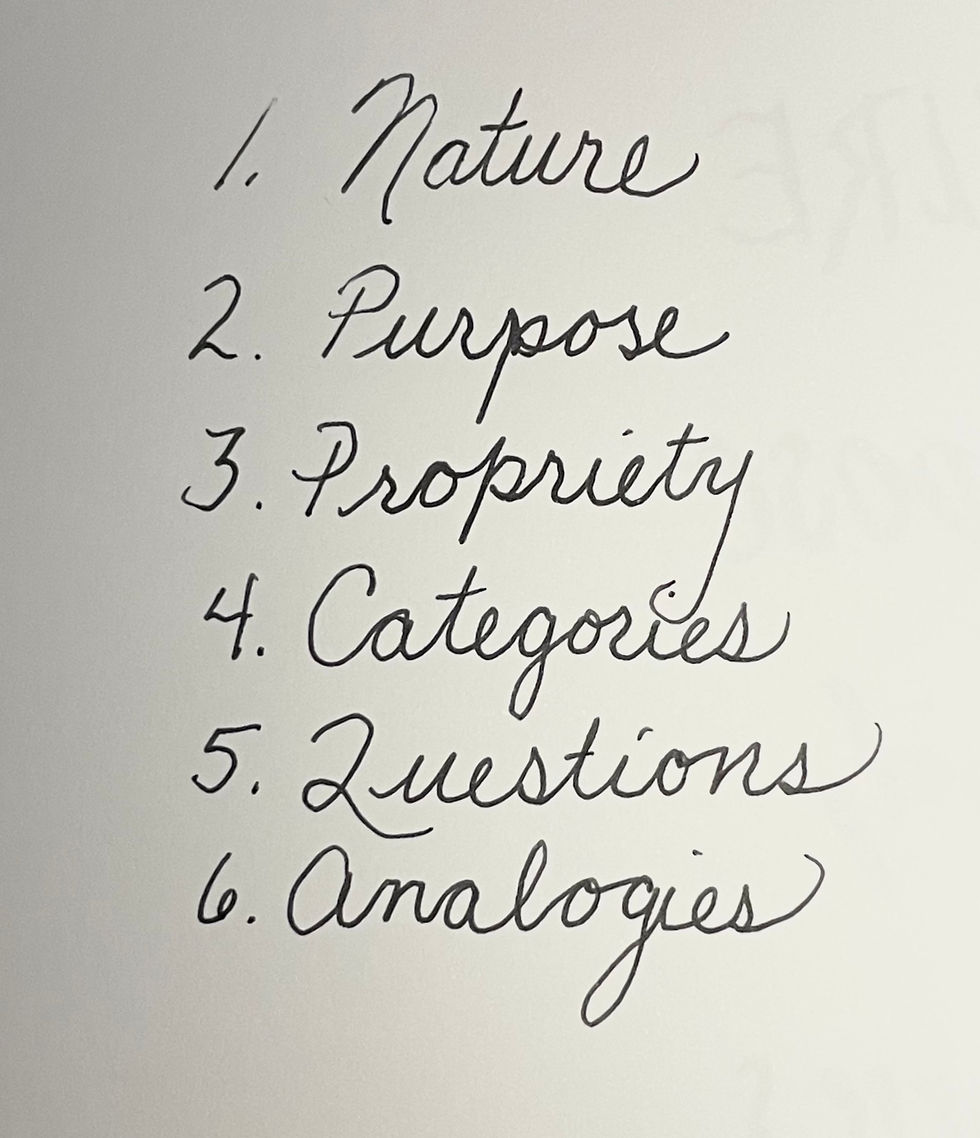Catechism: A Memory Plan for Schools
- Ryan Birsinger
- Jun 5, 2025
- 3 min read
A Catechism is a manual of religious instruction that is usually arranged in the form of questions and answers used to instruct the young, win converts, and testify to the faith(1). A catechism should contain the essential and fundamental content of the faith in a summarical and complete way (is that possible?).

If a catechism is usually a religious practice, how do we incorporate it into a 'non-religious' enterprise like education? (I can't believe I just said that! If we say that we are approaching Education a certain way because we believe it is the best way, then we are making an ethical claim. If we are to assert that there is a hierarchy of value and declare that something ought to be done--again, an ethical claim--but because ethics have foundations in transcendentals, it IS a religious claim.)
Catechisms strike at the basis of what we are trying to accomplish as educators. We want to introduce our scholars to the greatest Ideas and greatest works of Art in History to cultivate a ripe environment for scholars to encounter varying types of knowledge, skills, and experiences that pique curiosity, and fuel wonder, and ignite inquiry.
I teach in a brick-and-mortar K-12 school. I had to think very carefully about what kinds of ideas and knowledge that my eighth grade scholars would need to experience--something that they may not have already encountered--but something they will need to know to help them grow as they continue on their educational journey.
There are some important encounters and circumstances that eighth grade scholars will face, and each will become part of their experience of themselves and their community: Putting away childish things, peer interactions, dealing with adults in an increasingly mature way, and assuming more responsibility for themselves.
I was also looking for skills, strategies, and ideas that could be learned or shown valuable for the scholars that they might see and understand.
I take these experiences and knowledge and put them through this master list of Ideas (thank you Andrew Kern) to focus on what kinds of encounters and circumstances need to be addressed in the catechism:

Nature - What is education? For that matter, what is a child? How does he or she thrive?
Purpose - What is an Education for? What is a child for? What should he or she accomplish?
Propriety - What is considered an appropriate Education? What does a child need at this time of his or her life? How should that be presented?
Categories - Are there different kinds of Education? What are some categories that will be helpful in a child's life?
Questions - What questions are needed for educating? What questions will children need answered? What questions will the children need to answer themselves?
Analogies - What are some ideas and stories that will give insight and further instruction to the other ideas on the list?
I draw heavily from Joshua Gibbs, who has been a presenter at many of the Classical Education conferences I have attended.
Part of the goal is to have scholars memorize both the questions and the answers. Gibbs states that he asks adults and sometimes students, "What are some things that one remembers learning in school?" He usually hears that people remember songs, chants, and recitations, and most of what they remember best are almost always choral--everyone in the class recites at the same time. This unifying and participatory exercise helps to prime the memory in ways that last. The Catechism strengthens the muscle of the mind.
The catechism is an attempt to speak to important ideas my eighth grade class would be wrestling with over the next two semesters, so I thought using the texts from my class could help us to remember great ideas, and cement them to what we are reading as these ideas become a part of who we are.
Some places I harvest, in content or form, from our curriculum to answer the important questions (sometimes a bit cryptic).
Novels - Fahrenheit 451, A Christmas Carol, The Odyssey, To Kill a Mockingbird, Animal Farm
Essays - FDR, CS Lewis,
Poetry - The Psalms, Homer, Shakespeare, Hayden
Vocabulary - Virtue, Vice, Scornful, Meditate, Intercedes, Repentance, Responsibility.
I like to start doing the catechism on the second day of class in order to establish it as a very important part of the daily routine. Our classes meet three times a week, Monday for 45 minutes, and two other days for 90 minutes. We do recitations of the catechism (which is five to seven minutes long) twice a week on the longer days: the same catechism, every time, for the whole year.
(1) The Editors of Encyclopaedia Britannica. "catechism". Encyclopedia Britannica, 9 Jul. 2024, https://www.britannica.com/topic/catechism.




Comments